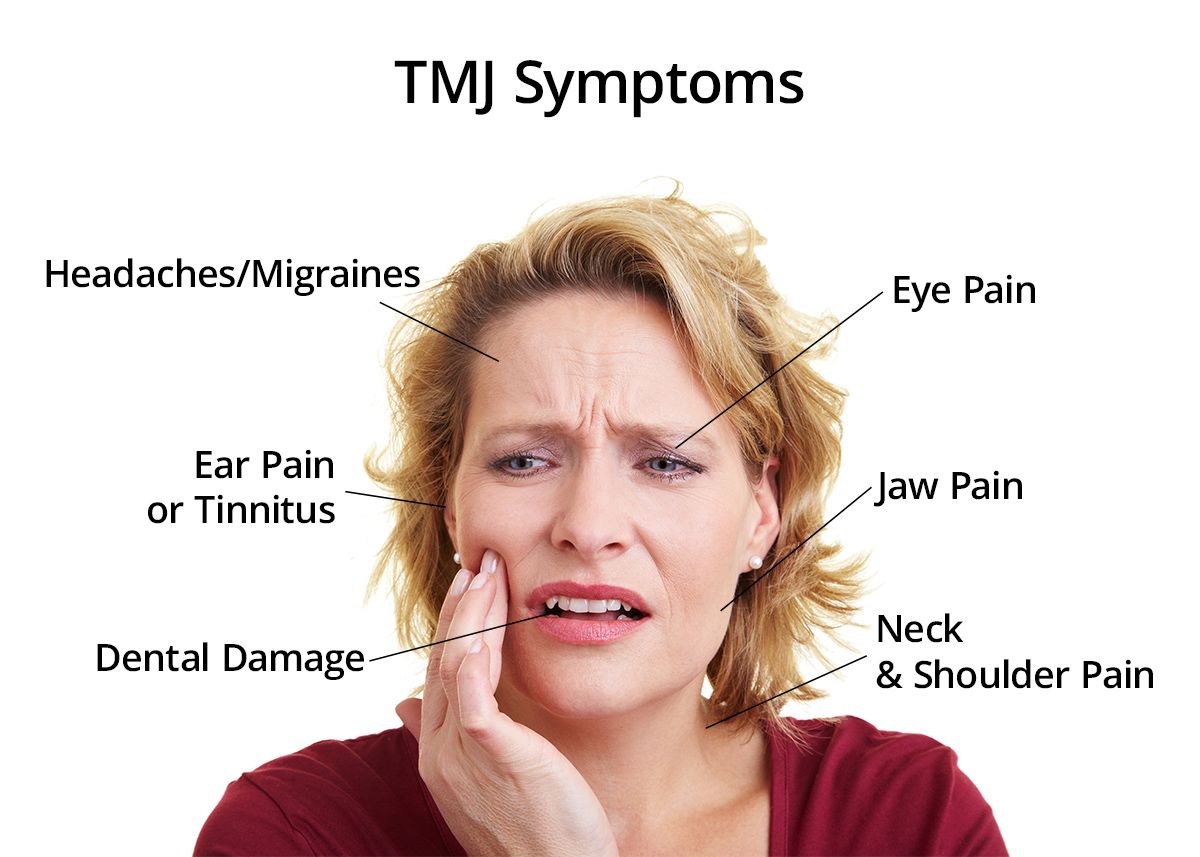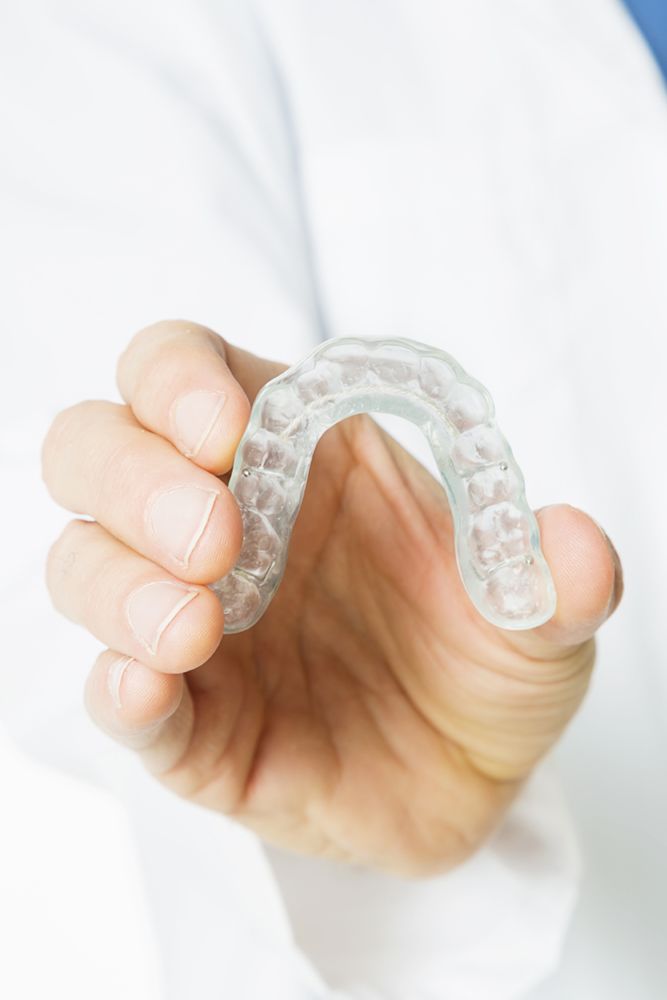Restore Jaw Health and Comfort with TMJ Treatment
If the temporomandibular joints (TMJs) are not functioning properly, it can cause a range of uncomfortable and bothersome symptoms. In some cases, pain in the jaw, head, neck, shoulders, and even the low back may be alleviated by correcting the alignment of the jaw joints. Dr. Richard Hughes is skilled in determining the cause of these symptoms and offers effective TMJ treatment at our Sterling, VA, office. Treatment may be as simple as wearing an oral appliance or rebuilding worn molars to establish proper occlusion.
Video: TMJ Disorder
A Closer Look at TMJ Disorder
Your lower jaw, or mandible, is connected to the temporal bone of your skull on each side, just slightly below and in front of your ears. These joints allow your mandible to move up and down, and side to side. The TMJs must be properly seated to allow for comfortable jaw function. Any number of factors can disrupt their position and cause TMJ disorder or dysfunction, sometimes referred to as TMD. Wear on the back teeth, crooked molars, a jaw injury, stress, or bruxism (habitual teeth grinding) are common causes of TMJ disorder.
Symptoms of TMJ Disorder
Our jaw joints are surrounded by a complex network of muscles and nerves. Disharmony of the jaw joints can tire these muscles and cause or exacerbate clenching and grinding, either unconsciously throughout the day or at night. This habit of bruxism damages molars, wearing them down and causing cracks or chips.

People who suffer with TMJ disorder may suffer any combination of a lengthy list of symptoms:
- Clicking or popping jaw joints when opening or closing the mouth
- Locking jaw joints or pain in the jaw
- Discomfort or pain in the shoulders, neck, head, or back
- Tingling fingers and toes
- Cannot completely close or open mouth
- Frequent headaches or migraines
- Earaches or ringing ears (tinnitus)

Treatment Options
Dr. Hughes needs to find the unique cause (or combination of causes) of your TMJ disorder to properly treat it. He often works closely with our patients’ physicians to more accurately determine the cause of the condition.
If stress has led you to grind your teeth, it should be helpful to first address any stress factors in your life. Activities such as yoga, exercise, listening to relaxing music, and getting outside more often can help reduce the negative effects of stress. Dr. Hughes may also recommend specialized physical therapy. In addition to stretches and exercises, this type of physical therapy may consist of everything from hot and cold therapy to massage and postural training.
If lifestyle changes and physical therapy do not alleviate your symptoms, an oral splint can gently bring the jaw forward, realigning your bite and relieving inflammation. This appliance will also keep the upper and lower teeth from touching, so that you cannot grind or gnash your teeth while you sleep.
Dr. Hughes often works closely with our patients’ physicians to more accurately determine the cause of the condition.
Bruxism can cause your molars to wear down, so some patients may need to have their teeth restored with crowns or other methods to establish proper occlusion. In some cases, the back teeth are not worn, but simply misaligned. Orthodontic therapy may be the preferred treatment to restore good occlusion for improved jaw health.
If injury or a physical defect or deformity are at the root of your TMJ disorder, Dr. Hughes may refer you to a specialist. In such cases, non-surgical treatment may not be effective.
Schedule Your Consultation Today
There is no need to suffer from the symptoms of TMJ disorder when a simple non-surgical treatment could relieve your symptoms. Contact Dr. Hughes today to reserve your personal consultation and examination.

